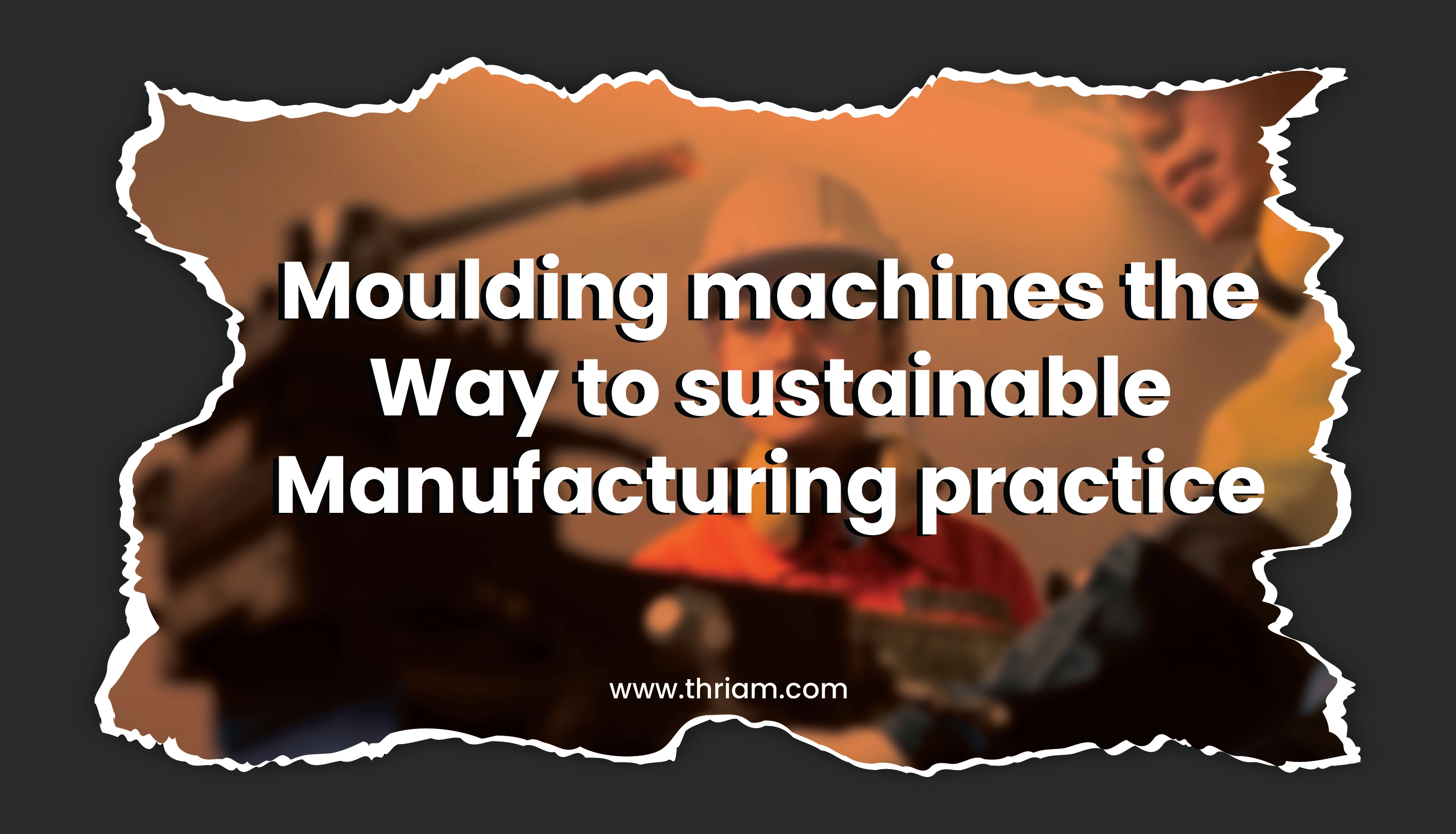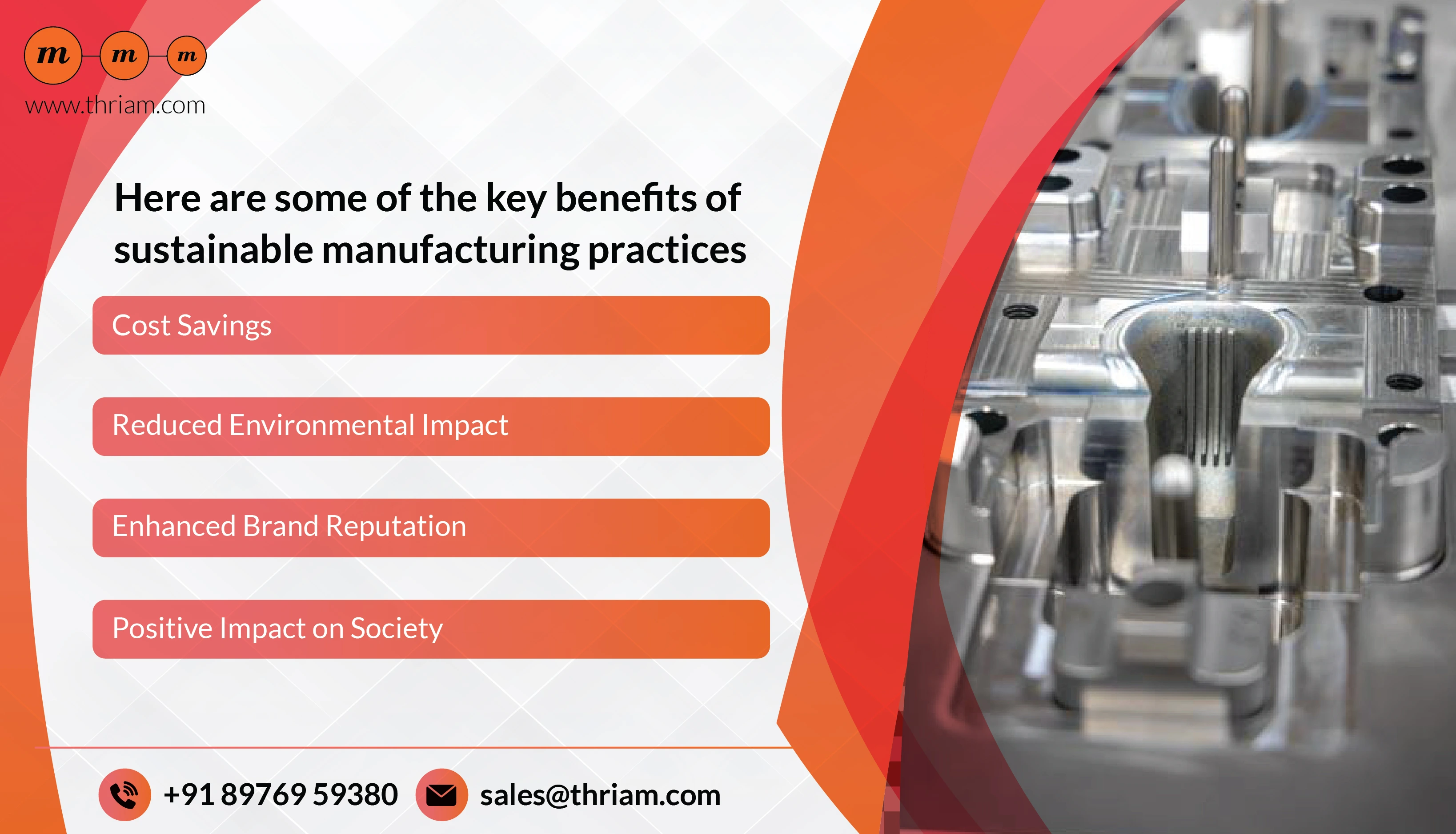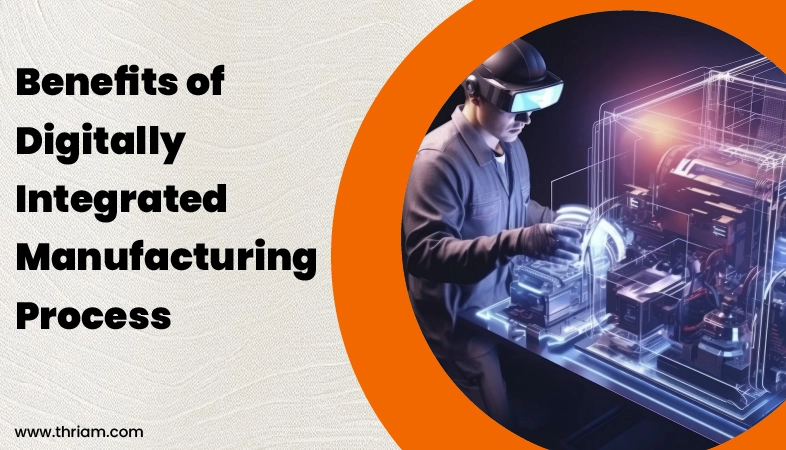Revolutionizing Manufacturing Practices: How Moulding Machines Contribute to Sustainability Goals

Introduction
In today's world, sustainable manufacturing practices have become essential for businesses to reduce their environmental impact and adopt more eco-friendly approaches. One crucial aspect of sustainable manufacturing is the use of moulding machines. These powerful machines play a significant role in achieving sustainability goals by minimizing waste, conserving energy, and promoting the use of recycled materials.
In this blog, we will explore the various ways in which moulding machines contribute to sustainable manufacturing practices and highlight their importance in creating a greener future.
Importance of Sustainable Manufacturing Practices
Sustainable manufacturing practices have become increasingly important in today's world. The impact of climate change and environmental degradation has led to a greater understanding of the need for sustainable practices in all aspects of life, including manufacturing.
There are numerous benefits of sustainable manufacturing practices, both for businesses and the environment. Companies that prioritize sustainability experience cost savings through reduced energy consumption and waste management. Moreover, they demonstrate a commitment to social responsibility, which can enhance their brand reputation and customer loyalty.
Sustainable manufacturing practices are also crucial for preserving natural resources and protecting ecosystems. By implementing more eco-friendly approaches, industries can reduce their carbon footprint and minimize greenhouse gas emissions. This, in turn, helps curb global warming and its resulting effects, such as droughts, floods, and sea level rise.
Here are some of the key benefits of sustainable manufacturing practices:

Cost Savings: Sustainable manufacturing can help reduce operating costs by promoting resource efficiency, waste reduction, and recyclability.
Reduced Environmental Impact: Eco-friendly production methods result in less pollution, greenhouse gas emissions, and waste generation. This helps preserve natural resources and protect ecosystems.
Enhanced Brand Reputation: Companies that prioritize sustainability demonstrate social responsibility, which can enhance their brand reputation and customer loyalty.
Positive Impact on Society: Sustainable manufacturing practices can positively impact local communities by creating jobs, promoting economic growth, and decreasing social and environmental risks.
How are moulding machines contributing to sustainable manufacturing
Moulding machines play a significant role in driving sustainable manufacturing practices. These powerful machines contribute to reducing waste, conserving energy, and promoting the use of recycled materials. Let's explore the different types of moulding machines and how they contribute to sustainable manufacturing:
Injection Moulding Machines:
Injection moulding machines are widely used in various industries to create products by injecting molten material, typically plastic, into a mould. These machines offer precise control over the manufacturing process, resulting in minimal material waste. They can produce complex parts with high efficiency, optimizing material usage. Additionally, injection moulding machines can use recycled materials, contributing to sustainable manufacturing goals by reducing the demand for virgin materials.
Blow Moulding Machines:
Blow moulding machines are commonly used for producing hollow plastic products, such as bottles and containers. The process involves inflating heated plastic into a mould, resulting in lightweight and recyclable products. Blow moulding machines contribute to sustainable manufacturing by enabling the use of recycled materials. By incorporating recycled plastics, companies reduce the environmental impact associated with the extraction and production of virgin materials. This promotes a more circular economy and reduces the carbon footprint.
Compression Moulding Machines:
Compression moulding machines primarily focus on manufacturing products from rubber or composite materials. These machines exert pressure on preheated materials, allowing them to take the shape of the mould. Compression moulding machines are known for their energy efficiency, as they consume less energy compared to other types of machines. Their low energy requirements contribute to sustainability by reducing the overall carbon footprint of manufacturing operations.
Sustainable Features of Moulding Machines
Moulding machines offer a range of sustainable features that support eco-friendly manufacturing practices. Some of these features include:
Minimize Waste Generation:
Moulding machines offer precise control over the amount of material used during the manufacturing process, minimizing waste. Additionally, automated systems and quality control mechanisms allow for the identification and rejection of defective products, further reducing waste generation. Combined with recycling initiatives, moulding machines help minimize the environmental impact of manufacturing operations.
Energy Efficiency:
Modern moulding machines are designed with energy-efficient features, such as the use of servo motors and efficient heating systems. These technologies reduce energy consumption, helping companies lower their carbon footprint. By investing in energy-efficient moulding machines, businesses can achieve significant cost savings and contribute to sustainable manufacturing practices.
Use of Recycled Materials:
Moulding machines provide the capability to incorporate recycled materials into the manufacturing process. This reduces the demand for virgin materials and promotes the use of recycled plastics or rubber. By utilizing recycled materials, businesses contribute to a more sustainable and circular economy by reducing waste and conserving resources.
Challenges and Solutions in Implementing Sustainable Practices with Moulding Machines
While the benefits of sustainable manufacturing with moulding machines are significant, businesses may face some challenges during implementation. These can include:
Cost considerations and investment limitations:
Upgrading machinery and implementing sustainable practices may require significant initial investments. However, businesses can overcome this challenge by conducting a cost-benefit analysis and exploring financial assistance programs or grants available for sustainable initiatives.
Training and skill development for operators:
The efficient use of moulding machines requires properly trained operators. Companies should invest in training programs to ensure that their staff understands sustainability goals and the best practices for operating moulding machines in an eco-friendly manner.
Collaboration with suppliers and stakeholders:
Achieving sustainability goals often involves collaboration with suppliers to source recycled materials or responsibly sourced inputs. Furthermore, engaging stakeholders such as employees, customers, and regulatory bodies can help drive sustainable manufacturing practices forward.
Conclusion
Moulding machines play a crucial role in sustainable manufacturing practices. Through energy-efficient operations, the utilization of recycled materials, and waste reduction, these machines offer remarkable opportunities for businesses to reduce their environmental impact. By adopting sustainable manufacturing practices with moulding machines, companies can not only contribute to a greener future but also enjoy cost savings and gain a competitive advantage. As we move forward, it is imperative that businesses continue to embrace sustainable practices, investing in advanced moulding technologies and driving innovation for a more sustainable manufacturing industry.



